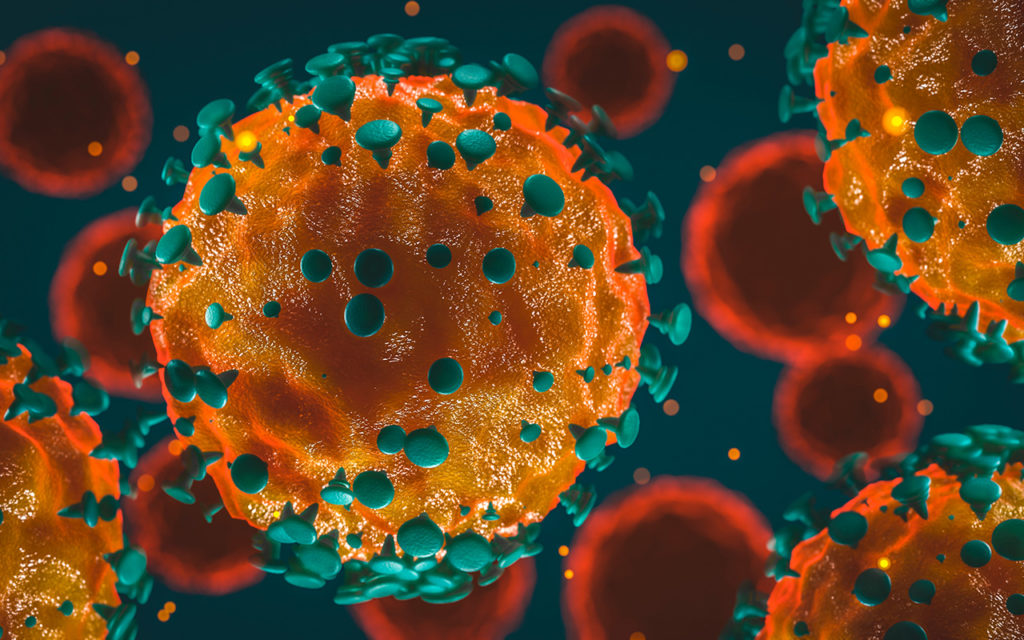Accuracy of commercial antibody kits for SARS-CoV-2 varies widely
There is wide variation in the performance of commercial kits for detecting antibodies against severe acute respiratory syndrome coronavirus 2 (SARS-CoV-2), according to an English study published in PLOS Pathogens. Throat and nose swab tests for SARS-CoV-2 establish if someone is infected with the virus that causes coronavirus disease 2019 (COVID-19). These tests are highly sensitive, capable of detecting very low viral RNA levels, and are optimal for the early detection of the virus. By contrast, antibody tests can determine whether someone has had the virus in the past. For diagnosis later in the disease, or in delayed-onset syndromes, antibody tests could form an important part of hospital diagnostic capabilities. The researchers developed their own sensitive and specific antibody assay and used it to conduct unbiased, head-to-head comparisons of 10 commercial antibody test kits on an identical panel of blood samples from 110 SARS-CoV-2-positive patients admitted to hospitals with COVID-19 and 50 pre-pandemic negatives. There was a broad range of performance among the tests, with specificity – the ability of the test to correctly identify those without the disease (true negative rate) – ranging from 82% to 100%, and overall sensitivity – the ability of a test to correctly identify those with the disease (true positive rate) – ranging from 60.9% to 87.3%. But all gave the best results when used 20 days or more after the start of symptoms, with most tests reaching a sensitivity value greater than 95%. In addition, antibody levels were higher in individuals with severe illness compared with those with asymptomatic or mild disease. When all commercial tests were compared, lateral flow immunoassays called Accu-Tell, SureScreen and Spring demonstrated highest sensitivity at earlier time points, while maintaining specificities of 98% or above. Such lateral flow immunoassays are affordable, quick and easy to use, and if they are deployed appropriately, may have considerable usefulness in health care settings.
Metformin treatment linked to slowed cognitive decline
Research conducted over 6 years in the Sydney Memory and Ageing Study in 1037 Australians (aged 70–90 years at baseline) has revealed that individuals with type 2 diabetes who used metformin experienced slower cognitive decline with lower dementia rates than those who did not use the medication. In this study, 123 participants had type 2 diabetes, and 67 received metformin to lower blood sugar levels. The researchers tested cognitive function every 2 years, using detailed assessments that measured cognition over a number of capabilities, including memory, executive function, attention and speed, and language. In patients with type 2 diabetes taking metformin, there was no difference in the rate of decline in cognitive function over 6 years compared with those without diabetes. To establish a definitive effect, the researchers are now planning a large, randomised controlled trial of metformin in individuals at risk of dementia, assessing their cognitive function over 3 years. This may translate to being able to repurpose metformin – a cheap medication with a robust safety profile – to assist in preventing cognitive decline in older people. The Centre for Healthy Brain Ageing’s Sydney Memory and Ageing Study is an observational study of older Australians that commenced in 2005 and researches the effects of ageing on cognition over time.
Donor-conceived adults have higher incidence of immunology diseases
Adults conceived through sperm donation reported higher frequencies of allergies, type 1 diabetes and other autoimmune conditions in a world-first study that examined the long term health outcomes of donor-conceived people. The study was published in the Journal of Developmental Origins of Health and Disease. It looked at 272 donor-conceived adult participants from around the world together with 877 who were conceived naturally. Results revealed that for most health outcomes, donor sperm-conceived adults reported no significant difference to participants born through natural conception. However, donor sperm-conceived adults had seven times more type 1 diabetes diagnoses than naturally conceived adults, together with double the incidence of thyroid disease, acute bronchitis and sleep apnoea; and a 45% incidence of allergies compared with 35% in the naturally conceived population. Most of the health conditions reported by donor-conceived people had an immunological basis, suggesting an alteration to their immunological systems. The majority of participants were from Australia, the United States, the United Kingdom, Belgium and the Netherlands. Those conceived by donor or through natural conception were matched for age, sex, height, smoking habits, alcohol consumption, exercise and fertility. Donor-conceived people are a hard to reach population, with research consistently showing that the majority do not know they were conceived by sperm donation.
Online first at the MJA
Ethics and law: Ethical issues in reproductive genetic carrier screening
Dive and Newsom; doi: 10.5694/mja2.50789 … FREE ACCESS for 1 week
Research letter: Fewer presentations to metropolitan emergency departments during the COVID-19 pandemic
Kam et al; doi: 10.5694/mja2.50769 … OPEN ACCESS permanently
Perspective: The probability of the 6‐week lockdown in Victoria (commencing 9 July 2020) achieving elimination of community transmission of SARS‐CoV‐2
Blakely et al: doi: 10.5694/mja2.50786 … OPEN ACCESS permanently

 more_vert
more_vert